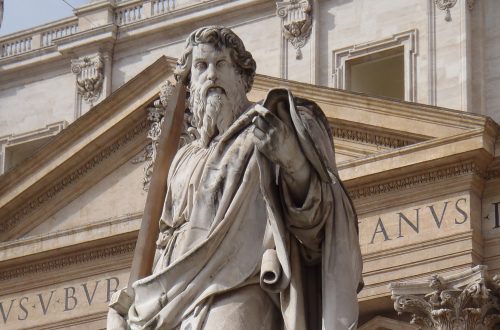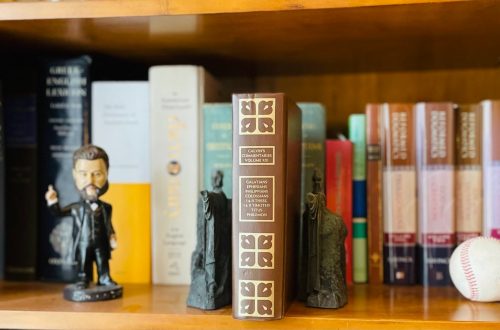 How could there possibly be anything more mysterious and wonderful than the incarnation of Jesus Christ? God became a man. God took on mortal human flesh and became subject to all the things that every other mortal is subject to. He sneezed. He coughed. He got headaches and an upset stomach. Every morning he got up, shook the dust out of His hair, and put his hand to the plow in his Father’s field.
How could there possibly be anything more mysterious and wonderful than the incarnation of Jesus Christ? God became a man. God took on mortal human flesh and became subject to all the things that every other mortal is subject to. He sneezed. He coughed. He got headaches and an upset stomach. Every morning he got up, shook the dust out of His hair, and put his hand to the plow in his Father’s field.
Jesus Christ was not only subject to sickness, but also to death. The eternal Son of God was die-able. In fact, he did die. And three days later, what was mortal became swallowed up by immortality in the resurrection.
Even now, the resurrected Christ sits at the right hand of God in glory. As I type these words, the incarnate God intercedes in the flesh for His people before the Father (Romans 8:34). And it all began in a manger 2,000 years ago. No, actually, we have to go nine months before that—when Jesus Christ was first conceived by the Holy Spirit within the virgin Mary, when the God-Man was an embryo. “Do not be afraid, Mary; for you have found favor with God. . . The Holy Spirit will come upon you, and the power of the Most High will overshadow you; and for that reason the holy offspring shall be called the Son of God” (Luke 1:30, 35).
How can it be that God has come in the flesh? How can it be that he is in the flesh now? Yet this is precisely what the Bible teaches. “Therefore, He had to be made like His brethren in all things, that He might become a merciful and faithful high priest in things pertaining to God, to make propitiation for the sins of the people” (Hebrews 2:17).
As we ponder the imponderables of God, let us never cease to be amazed at the manifold mercies of God that have come to us through the incarnation of King Jesus. Let every heart prepare Him room.
Merry Christmas!




5 Comments
Shaun DuFault
Denny,
Thank you for the great reminder and importance of Jesus becoming man.
You mentioned that Jesus was prone to sickness, headaches, and even death. Though he was prone to die, he was only going to die according to His time. No one else can say or even do such a thing, so his dying is a very unique case.
Also, if Jesus is the second Adam, in reference to Adam pre-Fall, would He be prone to sickness and headaches? It would seem if He was sinless and need to be without blemish as a sacrifice for us, would he every get sick? Why wouldn’t he just heal himself?
Thanks again for the wonderful reminder.
Merry Christmas
Shaun DuFault
Paul Johanon
Jesus Christ died on the cross. The human nature of Jesus Christ died, But to say that the eternal Son of God died is probably going too far. God can not and did not die. The divine nature did not die.
David Thomas
Not quite sure what you are driving at, Paul, but it is helpful to remember the maxim of Gregory of Nazianzus, “What was not assumed was not redeemed.” It is ancient orthodox teaching that at whatever point we declare that Jesus was not fully human (and in this case, did not die as we do), that is the point at which we are lost. If we don’t understand that Jesus was really dead, the resurrection is stripped of its power.
I believe that is what Denny is driving at.
David Thomas
Merry Christmas to you, Denny, from the far left coast.
Your title is remarkably apropos: Watts actually wrote this hymn that has become a Christmas favorite as an homage to the Second Coming, not the First.
Given where we stand, we must indeed prepare Him room.
Denny Burk
That’s why I love this song. Christmas is about eschatology, about hope.